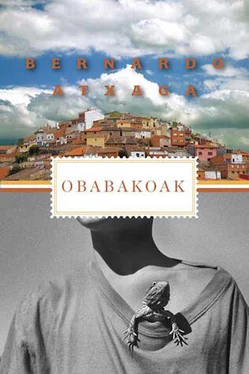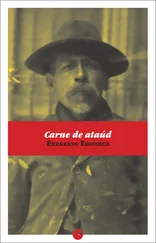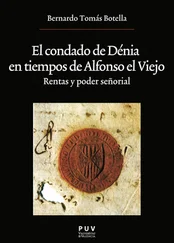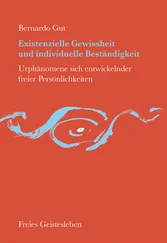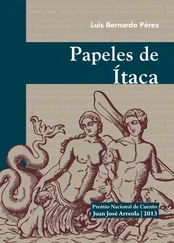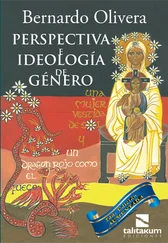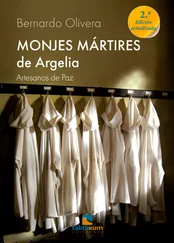Bernardo Atxaga - Obabakoak
Здесь есть возможность читать онлайн «Bernardo Atxaga - Obabakoak» весь текст электронной книги совершенно бесплатно (целиком полную версию без сокращений). В некоторых случаях можно слушать аудио, скачать через торрент в формате fb2 и присутствует краткое содержание. Год выпуска: 2010, Издательство: Graywolf Press, Жанр: Современная проза, на английском языке. Описание произведения, (предисловие) а так же отзывы посетителей доступны на портале библиотеки ЛибКат.
- Название:Obabakoak
- Автор:
- Издательство:Graywolf Press
- Жанр:
- Год:2010
- ISBN:нет данных
- Рейтинг книги:3 / 5. Голосов: 1
-
Избранное:Добавить в избранное
- Отзывы:
-
Ваша оценка:
- 60
- 1
- 2
- 3
- 4
- 5
Obabakoak: краткое содержание, описание и аннотация
Предлагаем к чтению аннотацию, описание, краткое содержание или предисловие (зависит от того, что написал сам автор книги «Obabakoak»). Если вы не нашли необходимую информацию о книге — напишите в комментариях, мы постараемся отыскать её.
Obabakoak
The Observer
Obabakoak — читать онлайн бесплатно полную книгу (весь текст) целиком
Ниже представлен текст книги, разбитый по страницам. Система сохранения места последней прочитанной страницы, позволяет с удобством читать онлайн бесплатно книгу «Obabakoak», без необходимости каждый раз заново искать на чём Вы остановились. Поставьте закладку, и сможете в любой момент перейти на страницу, на которой закончили чтение.
Интервал:
Закладка:
The cold is intense but, despite that, the walker wants to walk, so off he goes, striding along some path that disappears into the sky. Stopping at a crossroads, he pauses to clap his hands and jump up and down, stamping hard on the ground. But all in vain; this isn’t the month of August and now nothing stirs in the fields; the flocks of birds that would normally fly up at the least noise have gone elsewhere. Even the snakes — like “flashes of green green lightning”—that would slide from one field to another in the winking of an eye, are all in their nests, frozen, hibernating. No, there’s nothing on the plain. Or, what’s perhaps worse, there are only hungry crows, grown more listless than ever.
His walks grow ever shorter and finally even he gives up. He stays at home and spends half the day in bed because he has scarcely any wood left for the fire and, because the time to say good-bye is drawing near — he doesn’t want to go begging for any more. He even forces himself to sleep. And he does sleep and he dreams.
He dreams he’s inside Rosi and that a little blue light the color of butane gas is guiding him on his journey. And he sees that the inside of Rosi is all made of glass, of a glass that grows thinner and thinner, so thin in the end that it breaks if you touch it. Still walking, still following the blue light, he reaches a small room, the most secret room, and he sees a cupboard and in the cupboard a row of bottles and on the bottles drawings not of tomatoes but of hats.
Then he wakes up and sees through the window that it’s snowing. But a quarter of an hour goes by and he’s sleeping again and dreaming again.
He dreams that he’s walking across the snow to the bakery and that his friends from Villamediana, Julián, Benito, Daniel, and even Tassis are there to greet him but they don’t dare speak to him. They’re all wrapped in blankets and stamping their feet on the pavement.
Numb with cold, he reaches the square, and, since it’s the Christmas holidays, he finds it odd not to see any children there. But this isn’t the moment to stop and think and he starts running toward the bakery.
“Ah, paradise!” he exclaims as soon as he goes in. But it isn’t just the pleasant smell coming from the wood-burning stove, nor is it a reference to the weather. At least it isn’t only that.
He cries out to protect himself, to mask the other more compromising cry rising in his throat. For, among the baskets of bread and wrapped in the smell of freshly baked flour is a girl of about twenty reading magazines and the girl is wearing only the briefest of silk nightdresses with a low-cut neck that reveals a breast the size of an apple.
9. In accord with the belief that one has to say good-bye to places as well as people, I asked Daniel to go with me and take one last long walk before I left Villamediana forever. I wanted those places to remain in my memory so that later I could more easily remember all the times I’d spent there.
That day, though it was only three days before Christmas — the clear blue sky seemed utterly springlike and, unusual at that time of year, the windows and doors of all the houses stood open. The snow was melting fast and by the afternoon all that remained were a few white patches in the hollows of the rocks on the plateau. As Daniel said when we set out, this wasn’t Castile, it was the Mediterranean.
The weather — so different from the winter in which I’d arrived — did wonders for the ferns and mosses of my inner self and lessened that sense of sadness that crops up in all the popular songs about good-byes.
Slowly we walked through all the places I’d visited that year: Valdesalce, Valderrobledo, Valdencina, Encomienda, Fontecha, Ramiel… and sometimes, in Valdesalce for example, I’d tell Daniel things that I’d kept from him until then. I wanted to leave things between us absolutely clear.
“I never said anything to you before, but I did actually make friends with the little count. He’s a most unusual person as you know,” I began, and then told him all about our Friday meetings.
“I know you think I hate him and that’s why you never told me. But I really don’t. I feel sorry for him. Maybe it’s worse to feel sorry for someone than to hate them, but that’s how it is. Right now, I’m almost sure he’s run out of firewood. At any rate I haven’t seen any smoke coming from his chimney.”
“And you’d like to take him some.”
“I’ve got a bundle at home ready. It’s just a question of delivering it to him.”
Daniel was, in the best sense, a good man.
But that wasn’t the dominant mood of the conversation during our last walk. We left unpleasant topics completely to one side. We just walked and, as we walked, we remembered the time we watched the night games of the hares, the lunch we’d had with the shepherds and the jokes that were told afterward, the argument we’d had with a group of hunters.
Warmed by the south wind, we talked about the funny things that had happened to us during that time.
“Stop here, Daniel. Now this is a sacred place for me,” I said as we rounded a corner and came across a beehive.
“Something to do with a woman I bet.”
“Well, yes, but not in the way you mean. Do you remember how during those first few months I used to go around all the time in a tracksuit?”
“Yes, I do.”
“Well, one day I was having a quiet walk around here when I suddenly remembered my kitchen. I mean I suddenly remembered that I’d left a pot boiling on the stove. I could already imagine the house in flames and I was off like a shot. I came tearing around this bend at full pelt and right here, right where we’re standing, I ran slap into the whole female population of Villamediana out for a stroll. Some thirty of them, at least, married women, newlyweds, widows and grandmothers… and, of course, I couldn’t stop to talk, I had to get home as fast as I could. And when I passed them, you should have heard the applause, Daniel!.. when I tell you that even one of the grandmothers cheered me on, need I say more? I felt really touched. It was the first time in my life that I’d been cheered on as a runner. At last I understood how Zátopek must have felt.”
“Well, you know what women are like,” remarked Daniel. It was clear that some subjects were dearer to his heart than others.
Finally, crossing the plateau, we dropped down to the hill where the bodegas stood. There we saw Julián and Benito immersed in their task of surveying the plain, but I indicated to Daniel that I’d rather continue on, that I’d prefer not to stop there just then. I felt quite incapable of saying good-bye to those two old men.
At nightfall — still following the recommendations of those popular songs for when “the time has come to say good-bye”—we went drinking. In Villamediana itself to start with, then in the next village along, and later still in the bars on the main road. The next thing we knew we’d missed supper and we were, as another line from the song would have it, free from all sorrow.
“It’s time we did something serious!” said Daniel, opening his car door.
Then, having committed our first traffic offense of the night, he drove us to a club.
The plain to the north and the south; a row of warehouses toward the west; two trucks to the east; those were the cardinal points of LAS VEGAS. The sign was lit up in red neon.
There were two girls behind the bar and two more in front. The two behind the bar served us.
As far as I can remember, I spent the two hours we were there discussing the social and political problems of the Dominican Republic. I believe I received detailed and fairly well-documented facts that I subsequently forgot completely.
Daniel, for his part, tried to learn a few words of Portuguese, every now and then bursting out in loud laughter. I don’t know what the words were that he found so funny. I only remember that he paid for them in beer.
Читать дальшеИнтервал:
Закладка:
Похожие книги на «Obabakoak»
Представляем Вашему вниманию похожие книги на «Obabakoak» списком для выбора. Мы отобрали схожую по названию и смыслу литературу в надежде предоставить читателям больше вариантов отыскать новые, интересные, ещё непрочитанные произведения.
Обсуждение, отзывы о книге «Obabakoak» и просто собственные мнения читателей. Оставьте ваши комментарии, напишите, что Вы думаете о произведении, его смысле или главных героях. Укажите что конкретно понравилось, а что нет, и почему Вы так считаете.
